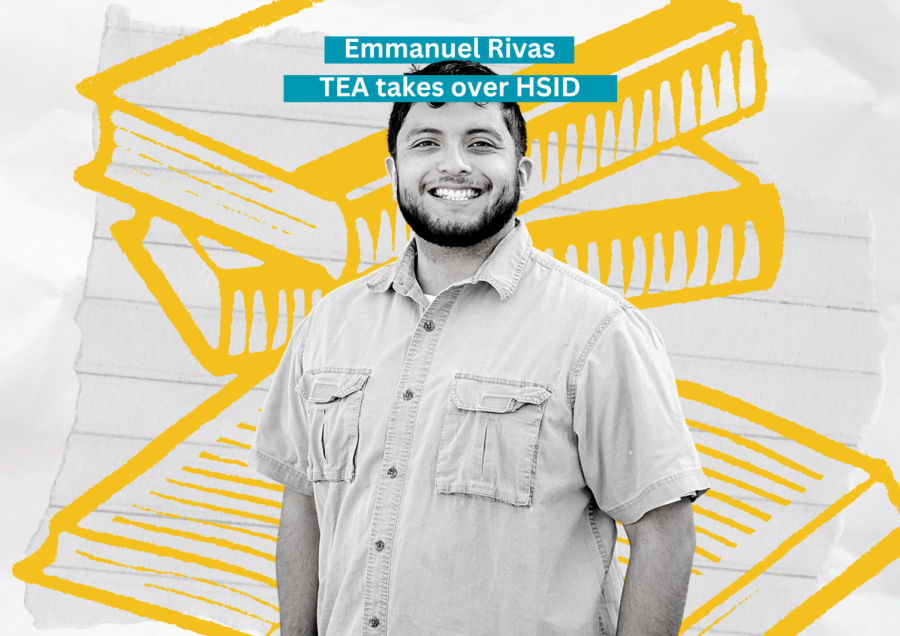In early March, the Texas Education Agency (TEA) announced the state would take over the state’s largest low-income school district, the Houston Independent School District (HISD), which was justified by state officials due to low state accountability scores.
This takeover allows the TEA to close schools. Most of those schools expected to close received an “F” rating from the TEA. These at-risk schools happen to serve a largely low-income population. HISD serves 194,000 students at over 276 schools making it the eighth largest school district in the country. Of those 194,000 students, 154,292, or 78.5 percent, are considered economically disadvantaged.
Although the TEA denies it will close any schools, the Texas Supreme Court case filed to prevent the March takeover, leaving the door open for the agency to close schools like Wheatley High School, which have received past “F” ratings for consecutive years. This forceful takeover has made many parents, educators and students angry.
“(TEA Commissioner Mike Morath) takes advantage of the fact that sometimes they are misinformed,” said senior, Elizabeth Rodriguez to the Cron, a Houston-based newspaper. “Some (students) only understand Spanish. But a lot of these schools are Black and Brown. They say that (the TEA) taking over is going to help the kids but in reality, it’s going to make things worse.”
“It feels like a death,” said Patrinia Baksmaty a parent of an eight-year-old who also spoke to the Cron. “It feels like a slow death for a parent like me and others. Yeah, it’s difficult; that’s what operating in a public entity is like, but you don’t want to throw out the baby with the bathwater.”
For a former public student like me, this move is widely concerning. I grew up in the low-income neighborhood of River Oaks, Texas, a Fort Worth suburb. The average household income in River Oaks was $25,332 according to the U.S. Census. This number translates to the school district’s percentage of economically disadvantaged students. 85.2 percent of Castleberry Independent School District’s (CISD), the school district serving River Oaks and other nearby communities, students are eligible for free or reduced-price lunch or other public assistance.
The Texas Education System funds schools based on property values. The higher the tax rate in a school district, the higher the funds.
My school district did not receive many funds and relied mostly on grants to help retain veteran teachers, which was easy to attain given the district only had six campuses. Not all school districts can keep up with grant applications, especially a school district like HISD.
The problem came when Wheatly received several “F” ratings over the course of five years. This changed after the school district, with the aid of city officials, overhauled the school district. As a result, Wheatly, along with other struggling schools, raised their accountability ratings. That is why, when the TEA announced it would take over HISD, several people were left shocked. One of those people was Houston Mayor, Sylvester Turner.
“This is about Austin and the leadership in Austin wanting to run local units of government and they want it their way,” said Turner in an interview with KHOU-11. “This is not about the kids. The sad part about it is that they are using the kids for their own politics. This process has been without transparency, with no community engagement. They haven’t even talked to the parents. They’ve provided no information to the kids, and this is not about the quality of education in this city.”
Citizens say the hostile takeover of HISD is a part of a larger attack on marginalized communities across the state and the country, led by alt-right extremists in positions of power.
All this, while Texas ranks 33rd in education, 45th in child poverty, first in child food insecurity and 27th in teacher pay. It becomes easy to argue that the state of Texas may not have its children’s best interest in mind. Religious extremists like Don McLeroy, Ph.D. have held the Texas Public School System hostage and our next generation is paying the price. McLeroy has fought to introduce creationism into public schools while serving on the Texas State Board of Education. The best recommendation I can suggest is contacting local officials and stopping the constant attack on students, teachers and parents. USA.gov offers an easy way to locate your local, state, and federal representative while Ballotpedia gives in-depth biographies for candidates running for anything from a school board member to the presidency. anything from a school board member to the presidency.
Emmanuel Rivas Valenzuela is the sports editor and may be reached at [email protected].edu: @rivasemmanuel2 on Instagram











